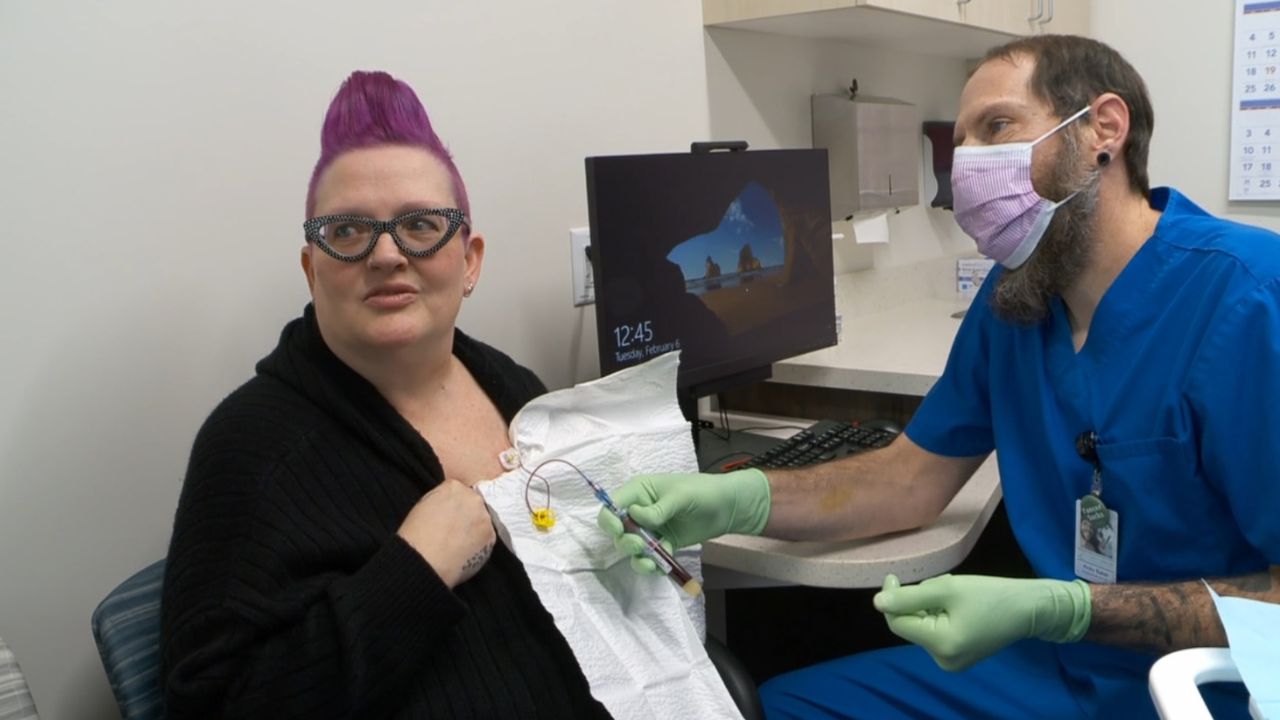SALT LAKE CITY — The saying goes, "The game is not lost or won until the last bell goes."
For Carrie Ann Kemp, her bell-ringing was her win.
After being cancer-free for 10 years, in November 2021, she went back to the hospital where she had endured 8 months of chemo, radiation, a bilateral radical mastectomy, a complete radical hysterectomy and 18 breast reconstruction surgeries.
"When you hit 10 years, they usually consider you cured, so we rang the bell. They were so excited because no one ever comes back for the good news,” Kemp said. “They were like, ‘Oh my gosh you came in today, just to ring the bell for 10 years?’ And I was like ‘Yeah, I love you guys, but I hope I don't have to see you ever again!’"
Five months later after a trip to urgent care for what she thought was pneumonia, she learned the cancer had returned.
This time, worse than before.
"I'm still in shock. That whole 10 years I was waiting for the other shoe to drop, but they say once you hit 10 years the likelihood of it coming back is nonexistent."
But hope was not lost. Kemp started taking Ibrance, a drug that keeps cancer from progressing. While her cancer is no longer in remission, for the last two years Ibrance has kept new cancer from growing and she feels great.
FOX 13 News tagged along for Kemp’s doctor's visit Tuesday, this one more somber than the ones bearing good news the last two years.
Kemp received a letter from her insurance company in December which stated that the money that would typically go to her out-of-pocket maximum would no longer be available — meaning she would have to fork out half of the cost of her monthly medication.
Ibrance is $24,000.
"I have to have $12,000 today," she said. "I don't have $12,000."
Without that $12,000, Kemp will have no Ibrance. She, like many Utahns, has fallen under copay accumulator adjustment. That's when insurance companies and pharmacy benefit managers keep the co-pay assistance meant for a patient and use it for more profit.
The assistance a patient would be receiving does not count toward their deductible or out-of-pocket cost.
In 2022, Utah State Sen. Evan Vickers authored a bill that aimed to combat this very issue, keeping money in patients' pockets. It failed.
During last year's legislative session, FOX 13 News talked to Sen. Curtis Bramble about his efforts to pass similar legislation. It passed the Senate, but did not pass the House.
"Insurance companies convinced the business community that should this bill pass, the insurance premiums would go sky high,” Bramble said. “That has not been the case in some 16 other states that have similar legislation."
This year's bill would require an insurer to calculate any amounts paid on behalf of an individual toward the individual's cost-sharing requirement. This experience has become a somewhat full-circle moment for Kemp as she once again faces the unknown.
Without Ibrance, how long does she have to live?
"I don't want to know," she said. "I don't want the mental game of some kind of countdown. I'd rather count up to how long I've gotten than how much time that I have left."
She knows time waits for no one, and she's hoping policy can catch up sooner rather than later.
"Like a lot of policy, this has been to be made about insurance and Big Pharma. It's not — it's about the patients,” Kemp said. “We are the ones that are going to suffer. Select Health and Blue Cross and PEHP and Big Pharma, they're always going to continue to make money. Even if I die, there's another cancer patient.
"I'm prepared to die of cancer. I'm not prepared to die because of a policy. I can't wrap my head around that. I can't get my kids to wrap their head around that."



